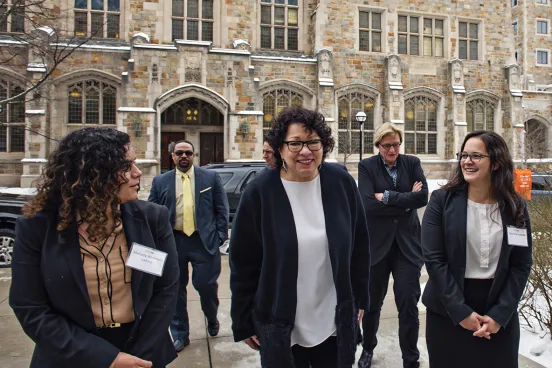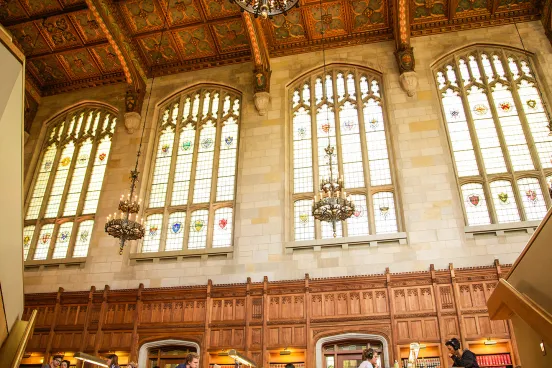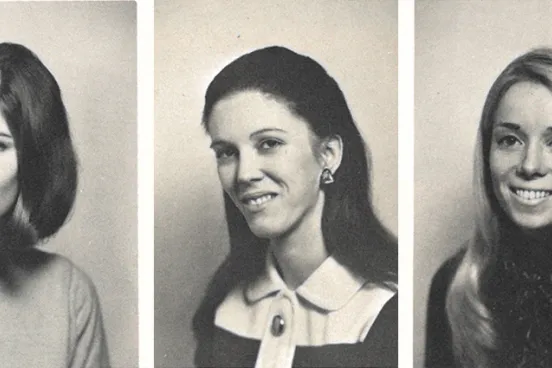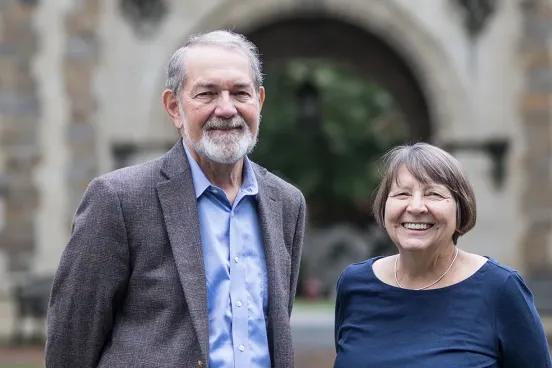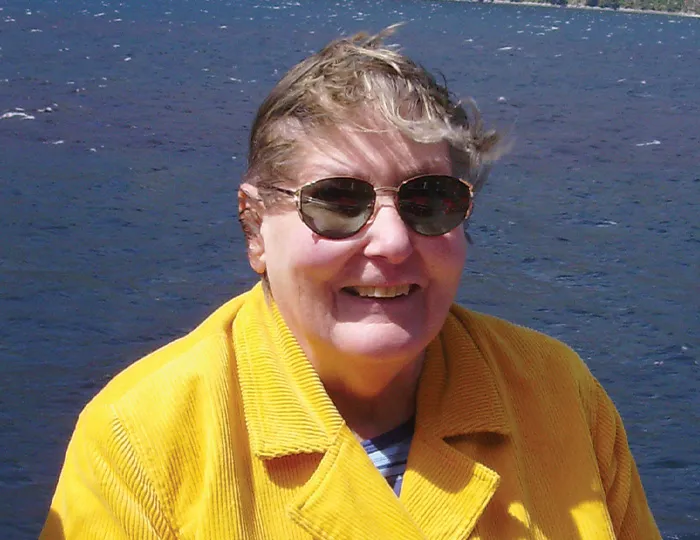
Barbara J. Kacir, ’67, was the first woman lawyer and partner at Arter & Hadden LLP in Cleveland. She later became the first female lateral partner at Jones Day, where her clients included members of the Motion Picture Association of America and R.J. Reynolds Tobacco Co. After 15 years with Jones Day, she accepted a position as vice president and deputy general counsel for litigation with Textron Inc., where she spent the final years of her career. Kacir now is retired and resides in Cleveland. She established the William J. Brattin Scholarship in 1990 in honor of her father.
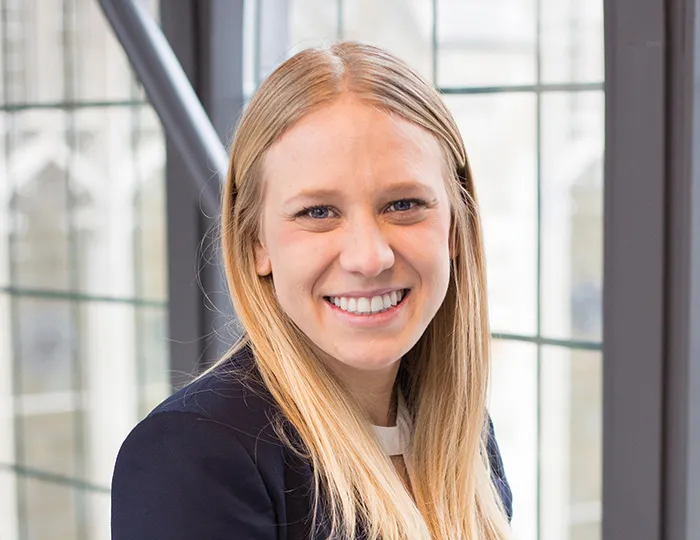
Jenna Neumann is a 3L from Flint, Michigan, where she founded Chapter for Children, a program to promote literacy among future generations. She earned her bachelor’s degree, summa cum laude, in political science, Spanish, and philosophy from Kalamazoo College. Neumann wants to pursue a career in employment law. As a 1L, she served as a representative for the Federalist Society and was a summer associate for the office of the general counsel at Fiat Chrysler Automobiles NV. More recently, she was an extern in Geneva, where she worked for the international migration law unit of the UN International Organization for Migration. She also was a summer associate at Baker McKenzie in Chicago. After law school, she will return to the firm to join the employment and compensation practice.
Why did you want to go to law school, and why did you choose Michigan?
Barbara Initially, my goal was to become Ohio’s first female senator, and law school appealed as a traditional access field for politics. But when I realized I could make a living arguing, negotiating, and advising people what to do, I knew I had blundered into a field that suited me exactly.
Back in my day, there was a commonly quoted saying about the premier law schools: Harvard teaches you what the law was, Yale teaches you what it will be, and Michigan teaches you what it is. That more pragmatic view appealed to me, as did the chance to watch real trials at the School and perhaps do some representation for pro bono clients.
Jenna I knew I wanted to go to law school since I took AP government as a junior in high school. The class provided a very short introduction to U.S. Supreme Court cases, and I was completely intrigued. I have always loved to read and write, and I knew that law school would provide me with the opportunity to focus this passion. I certainly have not been disappointed.
What class/professor had the biggest impact for you and why?
Barbara Looking back after 50 years, what stands out are the common threads I saw in virtually all my professors: a deep love and respect for the law, intellectual rigor and honesty, and a questing mind. Those were qualities I tried to apply in my practice.
Jenna I loved taking Constitutional Law with Professor [Samuel] Bagenstos. His passion for con law was contagious, and he made me really excited to come to class every day. Although the subject could be difficult, he broke it down in a way that integrated high-level analytical material with students’ practical, everyday experiences. This class not only made me more aware about the law, but also more attuned to how constitutional law affects social policy and people’s everyday lives.
What was your experience as a female student at Michigan Law?
Barbara There were 14 women in my class of nearly 400. Women couldn’t live in the Quad, which was a loss in terms of study groups and fellowship.
Professors and interviewers treated women differently and sometimes discriminated quite openly. Some professors called on us constantly, while others wouldn’t acknowledge women in class—even when we were volunteering answers.
I have vivid memories of showing up for an interview only to be told, “You are well qualified, but we hired a woman last year. It will be 10 years before we hire another.” Some firms didn’t even interview women.
Still, I loved the Law School and found it exhilarating. Being around so many bright, articulate people willing to argue about anything and everything was a constant joy. Sharing analyses of why things were decided the way they were was endless fun. The variety of backgrounds and interests among my classmates made for a viewpoint-broadening experience.
Jenna I do not feel as if I am treated any differently as a female law student. I have the same opportunities as my male counterparts and am afforded the same respect when I voice my opinions in class. This is largely due to people like Barbara who took the leap of faith to enter the legal profession and encouraged other women to do the same. We owe her a great debt of gratitude for paving the way for women.
What was your proudest moment in law school?
Barbara I helped develop a course in negotiation for the Law School. I was working as a counselor in an undergraduate dorm at the time, so we drafted students to play estranged spouses. They had instructions on what to fight for in a divorce. Then the lawyers had to interview their clients and negotiate with counsel for the opposing spouse. It was possible, though difficult, to reach a compromise. I thought it was highly innovative for that era.
Jenna My proudest moment in law school was working for the Agency for Migration with the United Nations in Geneva. I met diplomats and activists doing incredible things with their careers and had the opportunity to attend the Human Rights Committee on behalf of my organization.
Why do you give in support of scholarships?
Barbara I went to Michigan on scholarship. Without that help, I would never have the life that I do. I am grateful every day for the world the Law School has opened for me. How could I not pay that back? I am glad that I am in a position to help others have a Michigan experience.
What does receiving the William J. Brattin Scholarship mean to you?
Jenna The William J. Brattin Scholarship has been very useful for funding law school. I am grateful to Barbara for the financial assistance. I am so proud to be an Michigan Law student and am thankful that she helped make this possible.




